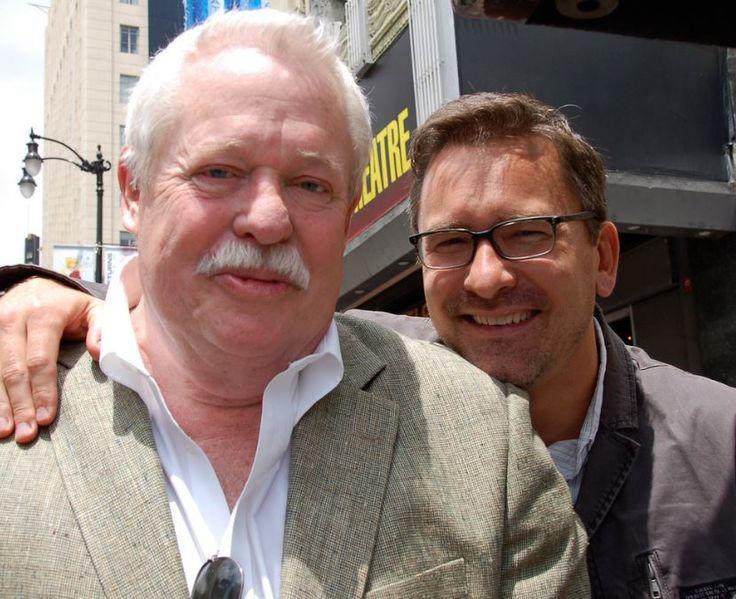Section Branding
Header Content
Armistead Maupin Reflects On Coming Out, Growing Up In The South In 'Logical Family'
Primary Content
Iconic American author Armistead Maupin is making two appearances at this weekend's AJC Decatur Book Festival.
The North Carolina native who gave us the “Tales of the City” is also marking the publication of a new memoir and a documentary film about his life.
Maupin joined GPB's Rickey Bevington via Facetime from his home in San Francisco.
GPB's Rickey Bevington interviews American author Armistead Maupin.
RICKEY BEVINGTON: For someone who has never seen or read “Tales of the City,” how would you summarize the series?
ARMISTEAD MAUPIN: It's a story about a variety of people living in a rickety old apartment house in San Francisco presided over by a transgender landlady. And that's been the case for 42 years now – since 1976.
I basically invented it for one of the first transgender characters in literature and it appeared serially in the newspaper in San Francisco and that was collected in books and has been made into four mini-series. And there's another one coming up soon on Netflix. It's all about what happens to these people and the variety of their experience and how we're all human.
And it's a comedy-drama. I guess that's the best way to describe it.
BEVINGTON: Did you write fiction before you came out?
MAUPIN: I did. Yeah, I did, because I started “Tales of the City” when I was still in the closet.
BEVINGTON: How did coming out influence your ability to be creative?
MAUPIN: Coming out made all the difference in the world. I realize, I had so many more stories to tell but I never allowed myself to tell. And that I even understood the heterosexual dilemma, if you will, better once I was out as a gay man. It made it easier to look into everyone's heart as well as my own. So it was just a field day for material.
BEVINGTON: And why did you decide to write a memoir?
MAUPIN: It was time. I'm 74 years old, and I thought I get should get things down on paper.
I was a very conservative young man growing up in North Carolina, very vocally conservative. And I think the story about how I got from there to here, wherever I am now is an interesting one, and how I dealt with my parents.
The memoir is called “Logical Family,” which is a phrase I coined about 10 years ago dealing with the fact that a lot of folks – especially these days – have a hard time reconciling their own lives and beliefs with the people in their biological family.
I've been kind of a Zelig-like figure in the culture. I was in the Oval Office with Richard Nixon. I met Rock Hudson, and a number of other people that were figures in the culture which passed through my life in one way or another.
BEVINGTON: So why did you choose to leave the South in 1972?
MAUPIN: I was beginning to realize my sexuality. I felt stifled in Charleston, as much as I love the town. I thought it was a beautiful town. Many of the things that attracted me to Charleston eventually attracted me to San Francisco. But that was the main reason: I got offered a job at the Associated Press. I went and interviewed with them in New York trying to get out of Charleston, and they said, first of all, we've got an opening in Buffalo. An old lady who lived in my building down in Charleston said “Honey, Buffalo is the last place in the world you want to shuffle off to,” and I took that as guidance and and said no. And the next day, they called back and said “Oh, well how about San Francisco?” So I packed everything into my little Opel and moved across the country. And that's part of the story as well in “Logical Family.”
BEVINGTON: You know, it just occurred to me that another of the world's great humorists who is also gay is from Raleigh, North Carolina. David Sedaris.
MAUPIN: That's right, our grandmothers were in the same rest home as they euphemistically called it. We've both been telling our stories in our own way.
BEVINGTON: And you both bring a uniquely Southern charm to your storytelling.
MAUPIN: Oh thank you. I'll take that. I mean, I think the South is famous for its storytelling and so I'm happy to be part of that tradition.


